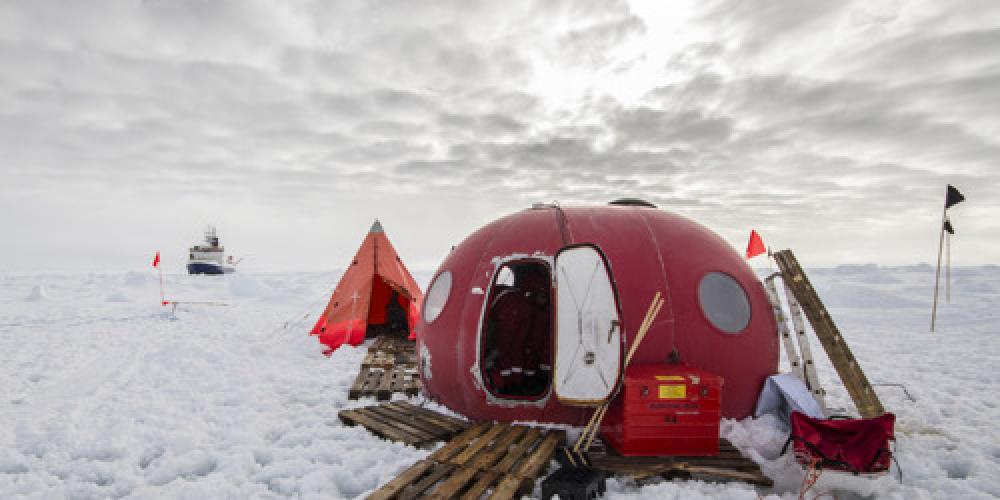
Cold climates and polar regions affect the functioning of the human body. Both physically and mentally, these environments are challenging. Various body characteristics and lifestyle patterns, such as sleep, diet and exercise, can influence tolerance to cold, and understanding how our bodies react in these conditions is essential for predicting performance and health. An international team including researchers from the Vrije Universiteit Brussel is studying these factors in the context of military operations, but the results may be useful for other purposes – such as for winter athletes.
Prof Nathalie Pattyn, Prof Martine Van Puyvelde and Dr Jeroen Van Cutsem (VUB and Belgium’s Royal Military Academy), and Prof Bart Roelands and Prof Olivier Mairesse (VUB) are part of the international team looking for predictive factors of resilience and tolerance to cold. The study will make it possible to draw up guidelines for optimising human performance in such conditions.
Research during military winter training and in Antarctica
For more than 10 years, Prof Pattyn has been carrying out research in Antarctica, on sleep, health and well-being and human performance. This has grown into a line of research for by a whole team, both within VUB and through national and international collaborations.
The team has carried out years of research at several Antarctic bases – Belgium’s Princess Elisabeth research station, Halley VI (British), Dumont d’Urville (French) and Concordia (French-Italian) – on the relationship between sleep, physical activity and performance in this extreme environment.
This year, they will begin studying a larger group of soldiers from several countries: some 300 soldiers will participate in the study during military winter training in Norway, Canada and the US. The first phase will start in the winter of 2022. Based on predetermined parameters, the participants will collect information about their experiences during this training. They will report on their sleeping habits and environment, their diet, mood and fatigue, and any injuries they suffer. They will also be subject to objective measurements such as body composition and physical and cognitive performance.
The aim is to identify sleep health, anthro-morphological and social-behavioural predictors of resilience and tolerance to cold during winter operations.
About the research team
The team comprises Prof Guido Simonelli (medicine, Université de Montréal); Prof François Haman (human kinetics, University of Ottawa); Prof Denis Blondin (medicine, Université de Sherbrooke); Prof Nathalie Pattyn, Prof Martine Van Puyvelde and Dr Jeroen Van Cutsem (Vrije Universiteit Brussel, Royal Military Academy, Belgium); and Prof Bart Roelands and Prof Olivier Mairesse (Vrije Universiteit Brussel). They have extensive collective expertise in the fields of sleep, nutrition, thermoregulation and human performance. The research will enrich understanding of sleep in cold operational conditions, prevention of cold-related injuries, and physical and mental performance in extreme environments. It will be conducted with support from external consultants from the Directorate of Fitness - Personnel Support Programs, Walter Reed Army Institute of Research’s Behavioral Biology Branch, and the Military Performance Division of the United States Army Research Institute of Environmental Medicine.